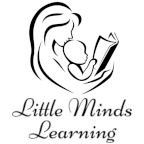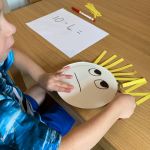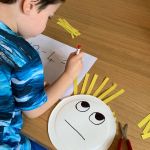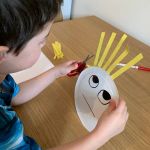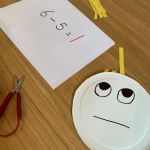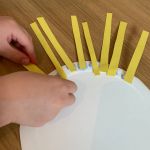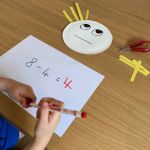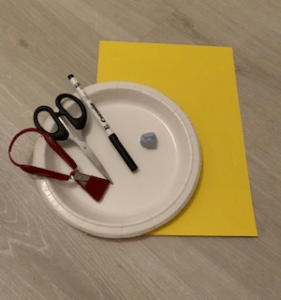- activity cutting hair 01
- activity cutting hair 02
- activity cutting hair 03
- activity cutting hair 04
- activity cutting hair 05
- activity cutting hair 06
For this activity, Jacob worked with the numbers 1-10.
However, this can easily be adapted to use with lower numbers (1-5) or extended to use higher (1-15 or 1-20).
Using a bigger plate would allow you to go even higher!
*”Easy Grip” scissors are the perfect ‘first scissors’ for early cutting skills. They are light, self-opening and far easier to use than conventional scissors as they do not require as much finger and wrist strength. They are also ideal for children who have not yet established a hand dominance as they can be swapped from left to right hands.

